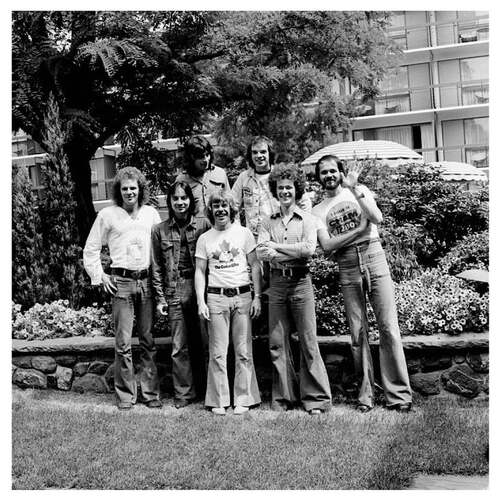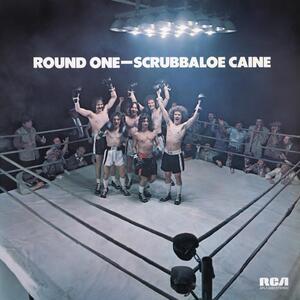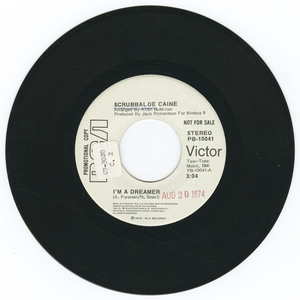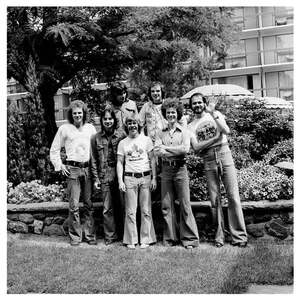Scrubbaloe Caine
Websites:
No
Origin:
Calgary, Alberta, 🇨🇦
Biography:
Scrubbaloe Caine emerged in the early 1970s as one of Canada’s most promising country-rock and blues-fusion bands, blending gritty guitar work with rootsy rhythms and rich vocal harmonies. Though often overlooked in mainstream retrospectives, the group played a vital role in bridging prairie rock traditions with the polished, FM-ready sound that defined Canadian rock through the decade.
The group was formed in Calgary, Alberta in 1971 by a trio of seasoned Vancouver musicians: Jim Harmata (guitar) and Bob Kidd (bass), both alumni of The Trials of Jayson Hoover and Anvil Chorus, along with Paul Dean, a rising talent on guitar and vocals who would later gain fame with Streetheart and as the co-founder of Loverboy. The lineup solidified with Al Foreman on keyboards and vocals, Henry Small on violin and lead vocals, and Bill McBeth on drums.
From the outset, Scrubbaloe Caine showcased a sophisticated, genre-bending approach: part Southern rock, part soulful prairie bar-band, and part progressive roots-rock. Their fusion of bluesy riffs, organ flourishes, and occasional fiddle made them stand out among the wave of post-Guess Who Canadian bands gaining traction in the early 1970s.
They signed to RCA Records and released their debut album, Round One, in 1973. Produced by Dallas Smith, the record featured standout tracks like “Feelin’ Good on Sunday” and “I’m a Dreamer,” the latter becoming a minor radio hit. The album reflected the band’s dynamic versatility—shifting from hard-driving rock to laid-back grooves without losing cohesion.
Despite extensive touring and solid reviews, Scrubbaloe Caine faced internal changes and label shifts. After the release of Round One, Bob Kidd departed and was replaced by Wayne Kozak, while Paul Dean eventually exited to join Streetheart, setting the stage for his later success with Loverboy. A second album was recorded but shelved, and the band’s momentum began to stall.
By 1976, Scrubbaloe Caine had effectively disbanded. But their brief output left a lasting impression, especially among musicians and collectors attuned to Canada's deeper rock legacy. Their blend of soul, blues, and country-infused rock served as a precursor to later acts like Blue Rodeo and Barney Bentall & the Legendary Hearts, who brought roots-rock into the mainstream during the 1980s and beyond.
In retrospect, Scrubbaloe Caine stands as a classic example of early-70s Canadian rock ambition—musically rich, commercially underrecognized, but crucial in shaping the careers of musicians who would go on to define Canadian radio rock for the next decade.
-Robert Williston




